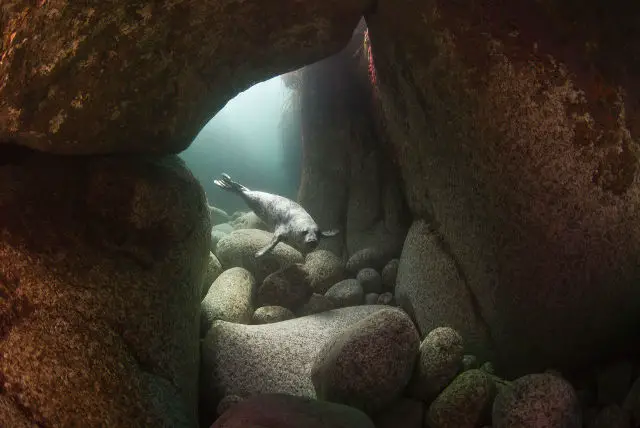Hannah Terrey shares this latest news on behalf of the Hampshire & Isle of Wight Wildlife Trust. Ed
Today, The Wildlife Trusts publish a new report that identifies the five unprecedented challenges for our seas that must be addressed before the UK leaves the European Union.
Beyond maintaining the current levels of protections afforded by European regulations, the Government has a unique opportunity to set out a clear and ambitious plan to tackle these issues, which collectively threaten the survival of our marine wildlife, damage our economy and our own health.
The challenges
The five critical challenges are:
- There are not enough protected wild places at sea – the network needs to protect the whole range of wildlife in our seas.
- Fishing – after the significant reform of the Common Fisheries Policy we have begun to see some of our fish stocks recover. But there are still significant issues with fish being unnecessarily discarded. We need to make sure that recovery continues in order to benefit jobs, consumers and wildlife
- Lack of planning of competing interests – fishing, oil rigs, wind farms and gravel extraction from the seabed all take a huge toll on UK seas, fragile seabed habitats and the wildlife that lives in them; we need to plan our seas so that we have space for wildlife to recover and to provide certainty to industry as to where they can develop and fish.
- Severe pollution – sewage, farming chemicals, plastic litter washed out to sea, abandoned fishing nets and noise pollution from new developments at sea are killing wildlife and adversely affecting human health
- Human behaviour – our success in tackling these threats ultimately rests on people’s understanding and accepting the need for change
Reached a tipping point
Tim Ferrero, marine policy specialist at Hampshire & Isle of Wight Wildlife Trust, says:
“Our local seas are under unrelenting pressure from pollution, shipping, damaging fishing practises and the impact of climate change. We have reached a tipping point, but we now have a unique opportunity to reform the way we manage and care for our seas to promote recovery and ensure that we can all benefit from this vital and valuable resource. We are really fortunate to have some amazing marine wildlife here, including fantastic seagrass meadows and salt marshes – home to seahorses, oysters and cuttlefish.
“However, we know that plastic waste is being consumed in large quantities by our fish and shellfish and, indirectly then, by people. Seabird numbers are dropping due to lack of food and across the UK sea bass stocks have declined by 50% in five years. The natural balance of our seas is at an all-time low and we need a brand-new strategy which effectively tackles these threats.
“We must expand the network of protected areas, so that our fragmented wild places and wildlife can recover and we will be pushing for further Marine Conservation Zones around the Solent. We also hope that the forthcoming South Marine Plan will take forward the recommendations within this report and set out an approach that places a healthy marine environment at its heart, as this is critical to ensuring our local seas can survive and thrive for generations to come.”
Peter Barham, Chair, Seabed Users Development Group, says:
“Marine industries are essential to meet the challenges of Blue Growth and UK climate change targets. Marine industry is also quite rightly highly regulated to make sure that developments have minimal impact on the environment.
“We are working with The Wildlife Trusts and decision-making authorities to examine potential impacts and using that information to look for better ways of working. In this way we can meet the needs of both the economy and the environment.”
Image: © Dan Bolt





